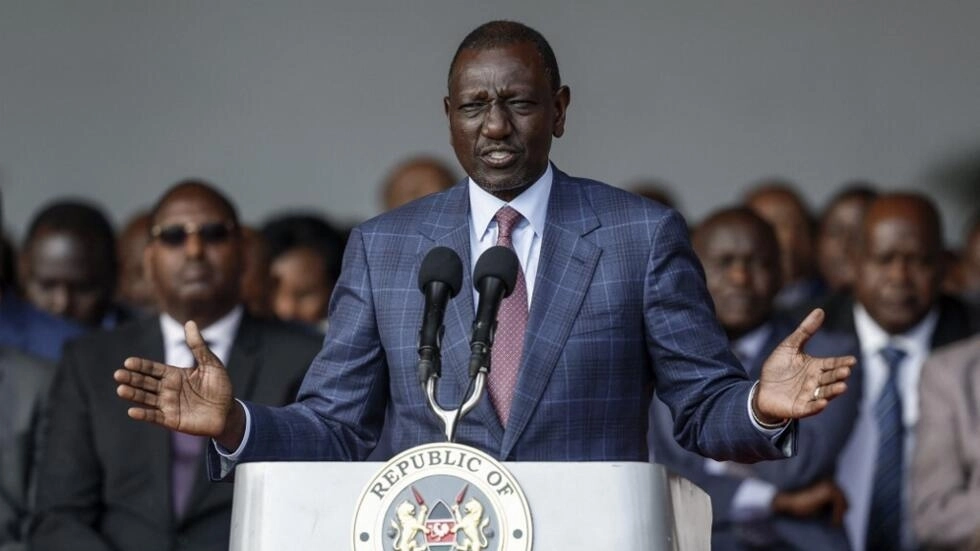
KENYAN President William Ruto announced on Wednesday the withdrawal of proposed tax hikes after facing intense pressure from youth-led protests that resulted in deadly clashes and widespread demonstrations. This marks a significant victory for the protest movement, which has been demanding a political overhaul.
The announcement followed violent confrontations between police and demonstrators, with at least 22 people killed and many more injured across the country. The Kenya National Commission on Human Rights confirmed the death toll and pledged an investigation into the violence, which saw protesters storm parliament and set parts of the building ablaze.
Addressing the nation in a televised speech, Ruto stated, ‘Listening keenly to the people of Kenya who have said loudly that they want nothing to do with this finance bill 2024, I concede. And therefore, I will not sign the 2024 finance bill, and it shall subsequently be withdrawn.’ He was accompanied by lawmakers who applauded his decision.
Despite Ruto’s announcement, many protesters have vowed to continue their demonstrations. Organizers have called for a rally on Thursday, with plans to wear white in honour of those who lost their lives. ‘You cannot kill all of us,’ said protest organiser Hanifa Adan on social media platform X.
The protests, which began peacefully last week, escalated on Tuesday when police opened fire on crowds around parliament. The Kenya Medical Association reported that around 30 people were treated for bullet wounds, with many more injured during the clashes.
Vice President Rigathi Gachagua urged young people to call off the protests to prevent further loss of life and property damage. He criticised the intelligence services for providing poor advice to the government, suggesting that better guidance could have prevented the violence.
Ruto indicated that he would start a dialogue with Kenyan youth and implement austerity measures, including cuts to the presidential budget, to address the country’s financial needs. ‘The loss of life on Tuesday was very unfortunate,’ he said, expressing his condolences.
Even with the withdrawal of the finance bill, Ruto faces a delicate balance between addressing the demands of his citizens and meeting the expectations of international lenders like the IMF, which has urged deficit reduction for additional financing.
Kenya’s sovereign dollar bonds remained largely unchanged following the announcement. The country’s bonds traded between 74.6 and 95 cents on the dollar, according to Tradeweb data.
The protests, initially sparked by proposed taxes on essential items like bread and diapers, quickly evolved into a broader movement against the entire finance bill. The Nation newspaper reported demonstrations in at least 35 of Kenya’s 47 counties, from major cities to rural areas, including Ruto’s hometown of Eldoret.
Posts on social media have urged continued action, with calls to occupy key locations such as State House and the offices of the World Bank and IMF in the coming days. However, the origin of these calls remains unclear.
While the protests are largely leaderless and have urged traditional opposition figures to stay away, some political rivals have expressed satisfaction with Ruto’s decision. ‘Self-preservation has kicked in,’ opposition senator Edwin Sifuna commented on X.
Lawmakers had already made some concessions by removing certain tax hikes from the finance bill on Tuesday, but the remaining provisions were still contentious. The withdrawal of the bill now leaves room for potential renegotiation and further dialogue with the public.













